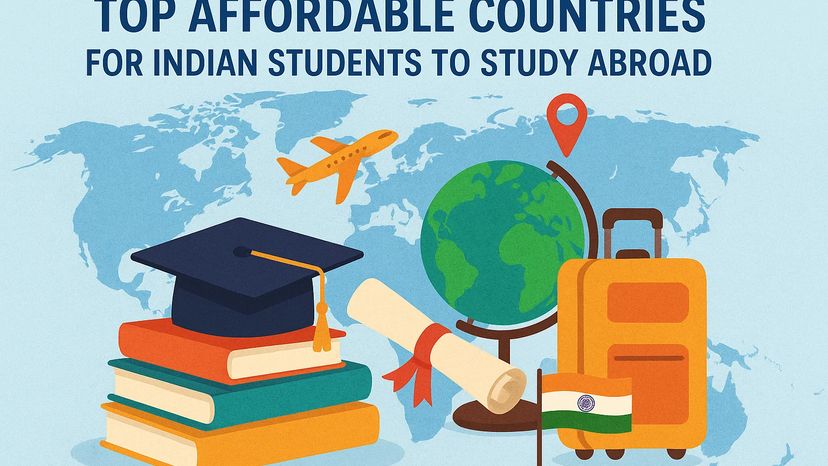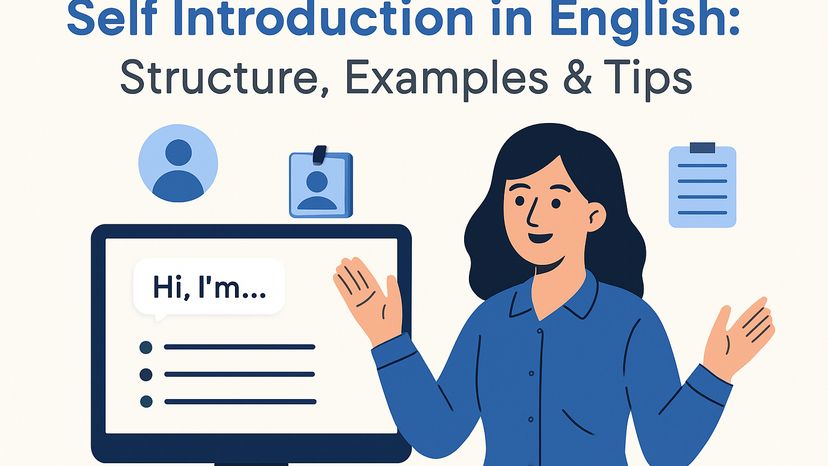So, your child has done their schooling in an international curriculum, but now you’re wondering “Wait.. can they take admission in an Indian University?”. You’re not alone, bud. With the rise of the international curriculum in India, and an increasing number of Indian families choosing them, it’s natural to wonder how this translates, when applied to Indian colleges and universities.
The good news? A major chunk of Indian universities do accept international curriculums. The trick is to know how the process works, what documents are required, and where all can your child apply. So, let’s simplify it all for you in this article so you don’t have to worry any more.
What is an International Curriculum?
So, first things first - what do we mean when we say the words “International Curriculum”?.
Simply put, these are school programs that apply a global learning strategy. They provide more skill-based, analytical and holistic education, as opposed to the memorization and rote learning methods that are frequently seen and criticized in other boards. While they may seem as more of a burden on the child, these boards can be useful for them in the long term as they instill in them skills such as critical thinking and analytical reasoning. They are taught to actually understand the subjects they are being taught, instead of how best to cram them to get good marks and move onto the next grade.
Moving on, some of the most popular international curriculum in India are:
- International Baccalaureate (IB): Famous for its challenging academic and personal growth model. Features the IB Diploma Programme (DP) for Grades 11-12.
- Cambridge IGSCE/ A Level: Provided by Cambridge Assessment International Education and Pearson Edexcel. A Levels (Advanced Levels) are subject specific and highly regarded across the globe.
- American Curriculum: Not as prevalent as the other curricula, mostly taught in international schools and boarding schools. It features a High School Diploma, which is frequently paired with Advanced Placement (AP) classes.
All these curriculums ready students for a more interconnected and internationalized learning experience - and yes, Indian universities do accept them.
Are International Curriculums Accepted in India
The short answer? Yes, definitely.
Indian public, private, deemed to be, and technical institutions do accept international qualifications. But on a few conditions:
- Appropriate combination of subjects (particularly for science/technical courses)
- Specific grade or score thresholds
- Equivalency certificates, normally from the Association of Indian Universities (AIU)
Do You Need an AIU Equivalency Certificate
The short answer is, yes.
The long answer is that, if your child has studied in any of the above mentioned international curriculums in India, many universities, especially public ones, will ask for an AIU Equivalency Certificate. So let’s quickly break down what it means.
This certificate simply confirms that your child’s international qualification is equal to that of India’s Class 12, and yes, you may be thinking to yourself “But my child has studied in India only … why do I need to do this” and we get it. This is a super confusing ordeal. But the basic answer is that it's the curriculum, not its location, that matters. The curriculum is international in nature, and as such, you need to get this certificate to take admission in Indian Universities.
Where Can Your Child Apply? (By Type of Institution)
A. Central and State Universities
If your child is planning to go to traditional public universities such as:
- Delhi University (DU)
- Jawaharlal Nehru University (JNU)
- Jamia Milia Islamia (JMI)
- Savitribai Phule Pune University
- University of Mumbai
- University of Calcutta
- Gujarat University
- National Institute of Open Schooling (NIOS)
- Indra Gandhi National Open University (IGNOU)
Then yes, they can apply with international qualifications. Though, these generally don’t insist on an AIU Equivalency Certificate and are more relaxed, but they would still insist upon entrance exams. Moreover, subjects prerequisites apply - as usual - for example, the child cannot go in for B.Sc in Physics if they hadn’t studied Physics.
B. Private Universities
- Narsee Monjee Institute of Management Studies (NMIMS)
- Ashoka University
- Shiv Nadar University
- O.P. Jindal Global University
- Amity University
- FLAME University
- Symbiosis International University
These universities usually take scores from IB and A Levels in India directly, and most take applications through SAT/ACT. Some even conduct their own entrance tests or individualized admission procedures (such as interviews and SOPs).
Top 10 Medical Colleges in India
C.Deemed and Technical Institutions
Think engineering and technology-oriented universities such as:
- BITS Pilani
- Vellore Institute of Technology (VIT)
- Manipal University
- SRM University
These do allow international qualifications - assuming that your child has the correct subjects (such as Physics, Chemistry, Math/Biology). However, tests like BITSAT or VITEEE might still be required, so budget accordingly.
List of International Universities in India
Yes, you read that correctly. There are a few international universities that have opened, or are going to open, their campuses on India’s soil. So, for your convenience, here is a list of international universities in India (time of publication)
Opened Campuses
- University of Wollongong (UOW), Gujarat: Australia’s University of Wollongong opened its campus in Gujarat’s GIFT City in Gandhinagar in 2024, offering courses in Master of Financial Technology (normal and extension) and a Graduate Certificate in Financial Technology.
- Deakin University, Gujarat: Also located in GIFT City, Deakin University, also from Australia, currently offers two postgraduate programs: Masters of Business Analytics and Master of Cyber Security (Professional)
- Lancaster University, Delhi: Lancaster University has a campus in India that is located within the GD Goenka World Institute of Higher Education near Delhi, that offers programs in business and management.
About To Open/Announced Campuses
While not open and running (yet), some other universities are either undergoing campus construction or have expressed interest in opening a campus in India. These are:
- University of Southampton, Delhi: One of UK’s finest Universities, University of Southampton is set to open its first Indian campus at Gurgaon’s International Tech Park in August 2025.
- Queen’s University: Queen’s University from Belfast, Northern Ireland, is set to open its Indian campus at GIFT City in Gujarat this year, with academics expected to start by January 2026.
- Coventry University: A public university from England, it has also expressed interest in opening a campus at Gujarat’s GIFT City.
- University of Surrey: Another institution from the UK, it plans to open a campus in GIFT City by 2026-2027.
- Lincoln University College: LUC is a Malaysian Institution known for its IT, business and engineering programs that has expressed interest in opening a campus in Telangana.
Common Eligibility Criteria
For easy admissions, here are the standard requirements your child should fulfill:
- 12 years of education
- Minimum score requirement. IB Students typically require a minimum of 24 points while A Level Students must have achieved a minimum in three full subjects.
Subject Requirements:
- MBBS: Physics, Chemistry, Biology
- Engineering: Physics, Chemistry, Maths
- Command on English
In cases where English was not the teaching medium, a few universities might require IELTS/TOEFL scores.
Planning to Choose PCMB After Class 10th? Consider these 6 Things First
Entrance Exams for Indian Universities
Let us not forget that most Indian Universities today give admission on the basis of entrance tests rather than your school scores, and this applies to International Board Students as well.
So, these are some of the exams that you might need to get ready for:
- CUET: Required by the majority of central and state universities.
- NEET: Compulsory for medical and dental courses.
- JEE Mains & Advanced: For Engineering Courses
- CLAT: For India’s best law schools.
Private universities can waive these or use their own tests, but it’s always best to confirm with each institution individually.
Documents for Admission
So, you will need to provide a few necessary documents when applying for admission with international scores:
- AIU Equivalency Certificate (non-negotiable for public universities)
- Transcripts of Terminal and Expected Grades
- Letters of Recommendation (LORs): Particularly for Private Universities
- Statement of Purpose (SOP): To describe your child’s education path and objectives.
- Passport/ID Proof and School Leaving Certificates
Tip: Get the AIU Certificate done as early as possible. It can take a few weeks, and several universities will NOT go ahead without it.
Pro Tips of Parents and Students
Getting around the admission system on an international curriculum can be a daunting task - but it doesn’t need to be. Here are a few tips to guide you:
- Begin looking early - preferably by Grade 11
- Shortlist prospective universities and examine their individual requirements
- Talk to admissions counselors in person. They’re more helpful than you realize!
- Make preparations for entrance tests well in advance.
- If your child is applying for private universities, concentrate on establishing a strong application (SOP, LORs, Extracurriculars)











